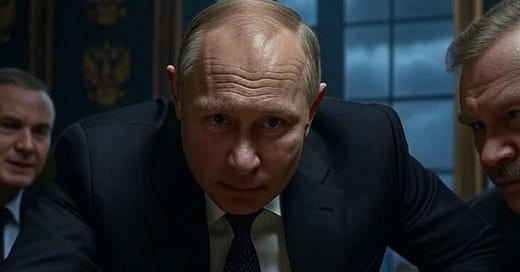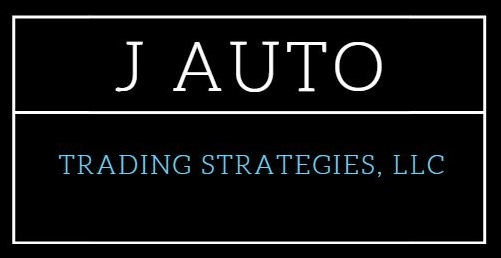Who Owns the Earth? Why Putin May Be Right on Gold, But Still Owes Ukraine a Cut
JULY 7, 2025
Who Owns the Earth? Why Putin May Be Right on Gold, But Still Owes Ukraine a Cut
By Julie Wade | J Auto Trading Strategies
Russia’s aggressive push to seize billionaire Konstantin Strukov’s majority stake in Uzhuralzoloto (UGC), the country’s fourth-largest gold producer, has sent shockwaves through global markets. On July 8, 2025, a hearing at the Sovetsky District Court in Chelyabinsk will decide whether Strukov’s 67.8% stake—valued at approximately 200 billion rubles ($2.5 billion)—will be transferred to the state. Prosecutors allege that Strukov, a deputy chairman of the Chelyabinsk regional assembly and member of the pro-Kremlin United Russia party, illegally acquired control of UGC through corruption, leveraging his political position and a Cypriot offshore company to obscure his ownership. The case is the latest in a string of asset seizures by Moscow, which has targeted domestic oligarchs and foreign firms alike since the Ukraine conflict began in 2022. UGC’s shares plummeted nearly 30% in two sessions, prompting Russia’s central bank to suspend trading to protect minority shareholders.
But this is more than a billionaire’s fall from grace. It’s a window into Vladimir Putin’s broader strategy: consolidating Russia’s natural wealth under state control as a bulwark against Western sanctions and a declining reliance on the U.S. dollar. Gold, a timeless hedge against economic instability, is at the heart of this maneuver. With global gold prices soaring and sanctions biting, Russia’s push to nationalize key gold mines signals a pragmatic, if ruthless, assertion of resource sovereignty. Strukov, whose $1.9 billion fortune was built on reviving UGC from near bankruptcy in the 1990s, now finds himself ensnared in a Kremlin campaign that spares no one—not even loyalists. Reports of his attempted flight to Turkey on a $50 million private jet, thwarted by Russian authorities on July 5, underscore the stakes.
The West can’t decide whether to condemn Putin as a dictator or a nationalist for moves like this. But amid the outrage, let’s pause for intellectual honesty: Putin isn’t entirely wrong. Gold mines, oil fields, uranium deposits—these aren’t mere commodities. They are a nation’s strategic birthrights. The notion that such assets should belong solely to billionaires or foreign private equity funds, detached from the state that houses them, isn’t capitalism. It’s globalist colonialism cloaked in free-market rhetoric.
When Brazil created Petrobras or Norway channeled Equinor’s revenues into a sovereign wealth fund, no one cried “communism.” These were pragmatic choices to safeguard national resources. Russia has followed suit with Gazprom and Rosneft, and now it’s tightening its grip on gold. As sanctions erode Russia’s access to dollar-based systems, gold becomes a geopolitical backstop—a currency immune to SWIFT bans. Putin’s logic is clear: if the West can freeze Russia’s reserves, Russia must secure its own. I don’t disagree with the principle.
But here’s where the logic fractures. If Russia claims sovereignty over its natural wealth, it must also respect the sovereign economic claims of others—namely, Ukraine.
Crimea’s Stolen Wealth
Crimea remains disputed territory, no matter how many maps Russia redraws. Ukraine has a legitimate claim to the revenues from the Black Sea energy fields and resource basins under Crimea’s soil. These include vast offshore gas deposits and mineral reserves that could bolster Ukraine’s economy. Whether Ukraine chooses to privatize those revenues or reinvest them through a state-owned entity is its prerogative—not Moscow’s. Yet Russia’s annexation of Crimea in 2014 and subsequent exploitation of its resources have deprived Ukraine of billions in potential income. Until Russia acknowledges Ukraine’s economic stake, its rhetoric of resource justice is hollow.
The hypocrisy runs deeper. Russia’s ability to wield leverage over strategic resources like uranium owes much to a controversial decision by the United States—one that continues to haunt Western energy security.
The Uranium One Scandal: A Western Misstep
The 2010 sale of Uranium One to Rosatom, Russia’s state nuclear agency, remains a stain on U.S. policy. Approved by then-Secretary of State Hillary Clinton, the deal handed Russia control over 20% of U.S. uranium production capacity—a critical piece of nuclear infrastructure. The Clinton Foundation’s receipt of $145 million in donations from parties linked to the sale raised eyebrows, fueling suspicions of corruption or worse. Why would any administration greenlight such a transfer to a geopolitical rival?
Uranium isn’t just a commodity; it’s leverage. By acquiring Uranium One, Putin gained a chokehold on a key component of global nuclear energy markets. Some have speculated about blackmail or hidden pressures behind the deal. I share those suspicions. The transaction was a strategic blunder, ceding a vital asset to a state with a history of weaponizing resources. While the Western press decries Putin’s gold grab, it conveniently sidesteps how Washington’s own missteps empowered Russia’s resource dominance.
A Better Path: Sovereignty, Not Theft
Putin’s crackdown on oligarchs like Strukov aligns with the logic of national stewardship. Gold, like oil or uranium, is too critical to be left in the hands of private tycoons or foreign investors. But true sovereignty respects boundaries. Crimea’s resources belong, at least in part, to Ukraine. A just resolution could include:
Shared Royalties: A percentage of Black Sea energy revenues allocated to Ukraine based on production volumes.
Escrow Settlements: Revenues held in a neutral, third-party account—released only upon production audits and compliance milestones.
Third-Party Oversight: Neutral facilitators like Turkey or China to ensure transparency.
This isn’t about war—it’s about math. A framework for equitable resource sharing could de-escalate tensions and align with the principles Russia claims to champion.
Yet Russia’s resource nationalism, as it stands, is selective sovereignty backed by military might. That’s not justice; it’s a monopoly with missiles. The Strukov case illustrates this starkly: a loyalist who served in Putin’s United Russia party, built a gold empire, and was once decorated by the Kremlin is now grounded, his assets targeted, his passport seized. If even Strukov isn’t safe, no oligarch is.
The West’s Own Hypocrisy
The United States has little moral high ground here. It sold its uranium to Rosatom. It subsidizes oil giants with tax breaks while preaching free markets. And it still hasn’t grasped that some assets—gold, oil, plutonium—aren’t meant for hedge funds or offshore conglomerates. The Strukov seizure should prompt introspection: why did the West allow its own strategic resources to slip into private or foreign hands?
In the end, both Russia and the West need a reality check. You don’t own the Earth. You’re borrowing it from the next war. Until both sides embrace resource sovereignty with borders and balance, we’re just rearranging deck chairs on a sinking empire.
Copyright © 2025 J Auto Trading Strategies, LLC. All rights reserved.
The information and content provided herein are for informational purposes only and do not constitute financial, investment, legal, or other professional advice. The views and opinions expressed are those of the author and do not necessarily reflect the official policy or position of J Auto Trading Strategies, LLC or any other entity. Any reliance you place on such information is strictly at your own risk.
J Auto Trading Strategies, LLC and its affiliates, officers, directors, employees, or agents shall not be liable for any loss or damage, including without limitation, indirect or consequential loss or damage, or any loss or damage whatsoever arising from the use of or reliance on this content. Trading and investment involve significant risks, and past performance is not indicative of future results.
This content is protected by copyright law and may not be reproduced, distributed, or transmitted in any form or by any means, including photocopying, recording, or other electronic or mechanical methods, without the prior written permission of J Auto Trading Strategies, LLC, except as permitted by applicable law.





